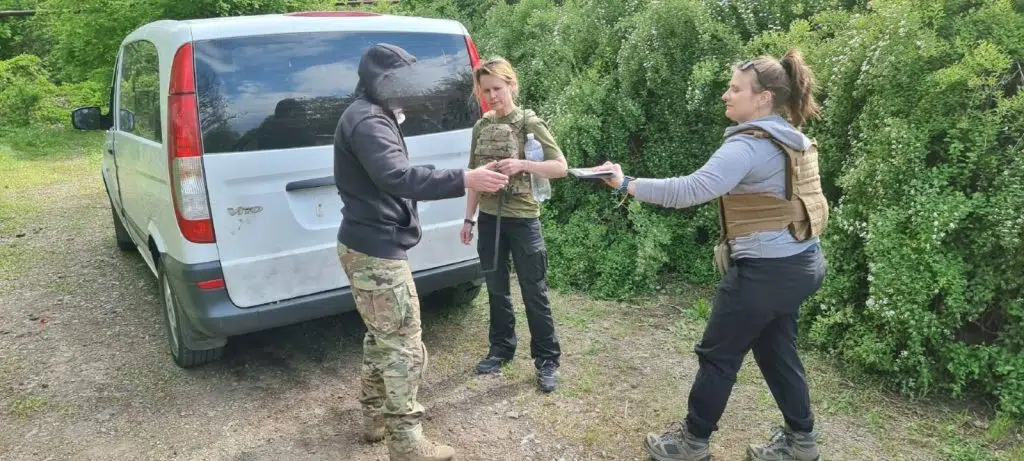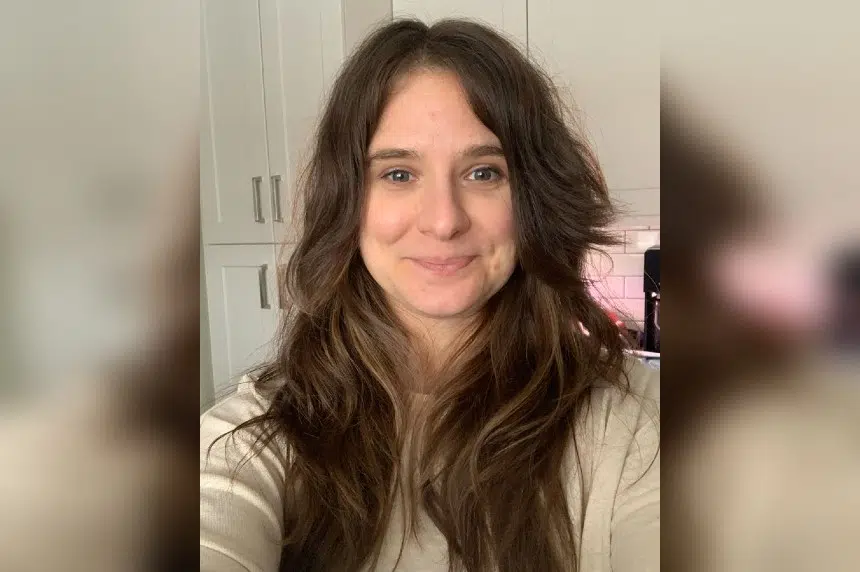A Saskatoon nurse who spent three weeks working on Ukraine’s front lines in May is heading back into the war zone.
Tanya Baran is an oncology nurse at Royal University Hospital and a third-generation Canadian-Ukrainian. She had gone several times to Ukraine before the war and speaks the language fluently.
She initially became involved with a non-profit organization called Ukrainian Patriot, which was started by another Saskatoon native, Lana Niland. The group has volunteers who work on the front lines of the war.
“It started off with me just doing some research on medical supplies and what we could do and what we could get our hands on. Then within a few conversations, I made the decision to purchase a plane ticket,” Baran said.
She was based in Kyiv, but travelled to the Donetsk region and other areas, ending up around 40 kilometres from the front lines. She can’t give exact locations for her own safety and that of other volunteers.

Tanya Baran (right) and Ukrainian Patriot’s Lana Niland (centre) in Ukraine with a Ukrainian soldier. (Tanya Baran/Submitted)
When she initially made the decision to go to Ukraine in early May, she only told a few people, mainly because she didn’t want them to worry about her.
“They were scared of my safety and what I may see or do or feel while I’m there, and I didn’t want to concern anybody,” Baran said. “While I was there, I didn’t want myself or family getting messages wanting to know where I am (and) what I’m doing.
“We try to keep phone, texting or any communication to a minimum just so nothing can be tracked. We want to keep the radios silent, you could say.”
When she arrived at her destination, there were times when she was startled, especially after she first heard the shrill cries of the air raid sirens which would go off day and night.
“But you just kind of adapt to it and kind of move forward,” she added.
Other times when she and her crew travelled for hours and were within earshot of the guns and bombs, it was unsettling.
“I don’t want to say you get used to it, but you just kind of keep your focus on the task and move forward. I think there was about one or two days when I did feel scared of the situation we were in, but I knew we were in good hands,” she explained.
Some of the tasks when she was there included training medics and assisting with medical cases from the front lines, and getting supplies to areas where there aren’t any. She can’t reveal whether she directly treated any soldiers.
“It was very important for us to fill up our vehicle and make our way to make sure medical supplies got into the right hands, as well as meeting with field hospitals and understanding their situation; what they were needing (and) what they were seeing,” she said.
The majority of her days were filled with planning where they would go, how they would get there, the length of time they could stay, and meeting their contacts.
“Every half hour to 45 minutes we would have to go through checkstops where they would be asking why we were heading in that direction or asking for passports and what we were doing, making sure that they understood why we were going and that we were there to help,” she said.
Even the simple task of filling up their vehicles with fuel took a lot of time. Baran said buying gas or diesel is difficult in the country right now. Her group would sit in a line for an hour or two, just to get 20 litres.
One thing she vividly recalled was how so many people were going through such difficult circumstances, but those she met made sure she and her group were well taken care of.
“We were welcomed everywhere we went. (They’re) just lovely people. (They) would give anything off their back,” she said.
“We were fed, given places to sleep and just in general they were overjoyed that the world cares and there were people willing to come out and show support and provide supplies and necessary items to help them.”
This time, she’s heading back to the front lines with suitcases full of medical supplies and gear.
“It just seems that it’s a no-brainer. I can do stuff here, but I can be more hands on and helpful there in person,” she said. “The war is not over. We can’t forget that this is happening.”











